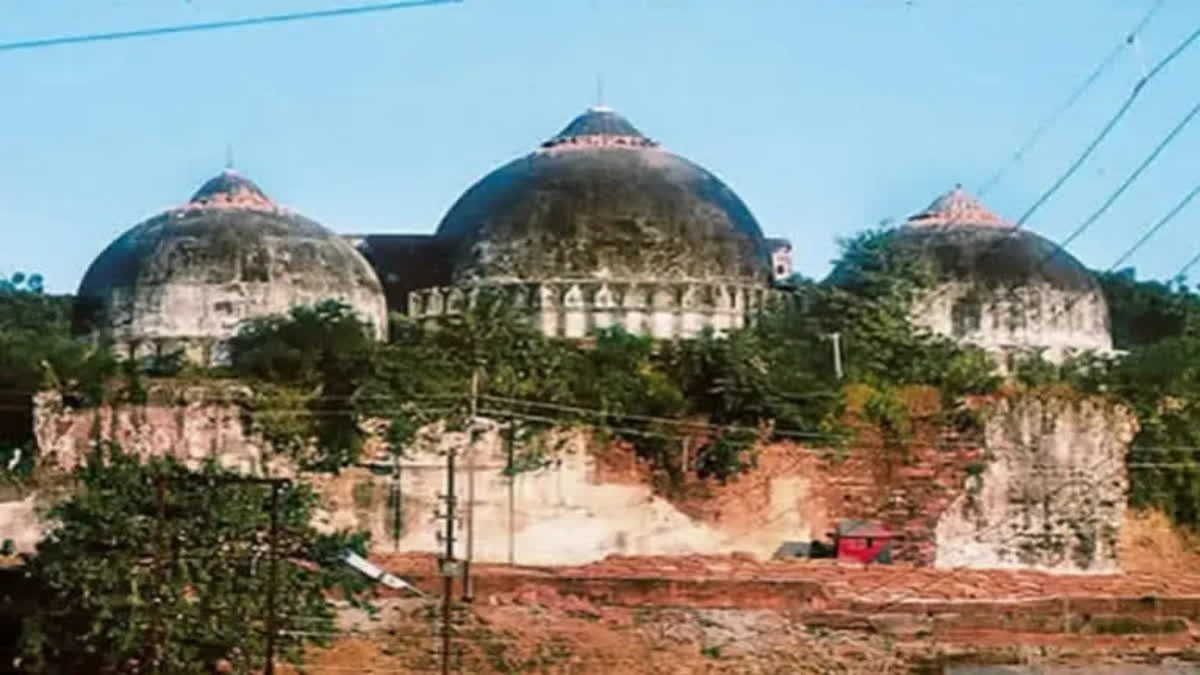Hyderabad: The 1992 demolition of the Babri Mosque had profound religious, social, and political ramifications. The incident represented deeply ingrained religious tensions and political complexities that reverberated throughout India for decades, in addition to the physical destruction of the structure.
Background of Babri Masjid- For centuries, the Babri Masjid in Ayodhya, Uttar Pradesh, has been a site of religious controversy. Historical accounts state that Mir Baqi, a general in the army of Mughal emperor Babur, built it in the sixteenth century. Nonetheless, Hindus maintained that the location was the birthplace of Lord Ram and that, prior to the mosque's construction, a temple honouring him had stood there.
Escalating Tensions- Tensions over the site escalated in the 1980s when Hindu nationalist organisations, prominently the Vishva Hindu Parishad (VHP) and the Bharatiya Janata Party (BJP), started a campaign advocating for the construction of a Ram temple at the Babri Masjid site. The issue became a rallying point for Hindu sentiments, seeking the restoration of what they considered a sacred site.
The Turning Point- India's history took a dark turn on December 6, 1992. A large contingent of Hindu activists, including politicians and religious leaders, gathered at the site of the disputed structure despite the existence of a court order that forbade any modifications to be made to it. As soon as things got out of hand, the mob destroyed the Babri Masjid and reduced it to rubble.
Aftermath and Ram Janmabhoomi-Babri Masjid Dispute: Numerous communal riots broke out in India as a result of the demolition, killing thousands of people and severely rupturing society. It also caused a national outcry and international condemnation.
A number of commissions and inquiries were then established to look into the incident and its aftermath. Citing a conspiracy to destroy the mosque, the Liberhan Commission, one of the most well-known investigations, held the BJP and other Hindu nationalist groups responsible for the demolition.
Legal Battles and Land Dispute- For many years, the Babri Masjid-Ram Janmabhoomi dispute persisted in the legal system. A number of court cases followed, with Hindu and Muslim factions vying for ownership of the territory. In addition to allocating the contested land for the construction of a Ram temple, the Supreme Court's final decision from November 2019 also provided an alternate plot for the construction of a mosque.
Societal Impact- The Babri Masjid demolition left deep scars on Indian society, intensifying religious fault lines and communal tensions. It exposed the fragility of India's secular fabric and highlighted the need for peaceful coexistence among diverse religious communities.
Political Ramifications-The incident profoundly changed the political climate in India. With its association with the Ram Janmabhoomi movement, the BJP gained prominence and went on to form both state and federal governments. The demolition also changed the political discourse in the nation, with religion becoming a more significant factor.
The destruction of the Babri Masjid serves as a sobering reminder of the negative effects of religious intolerance and discord within communities. It was a sad incident that caused deep societal divisions and tarnished India's secular culture. Even though the ensuing legal settlement made an effort to settle the land dispute, it was unable to completely mend the hurt or erase the memories of that fateful December 1992 day.



